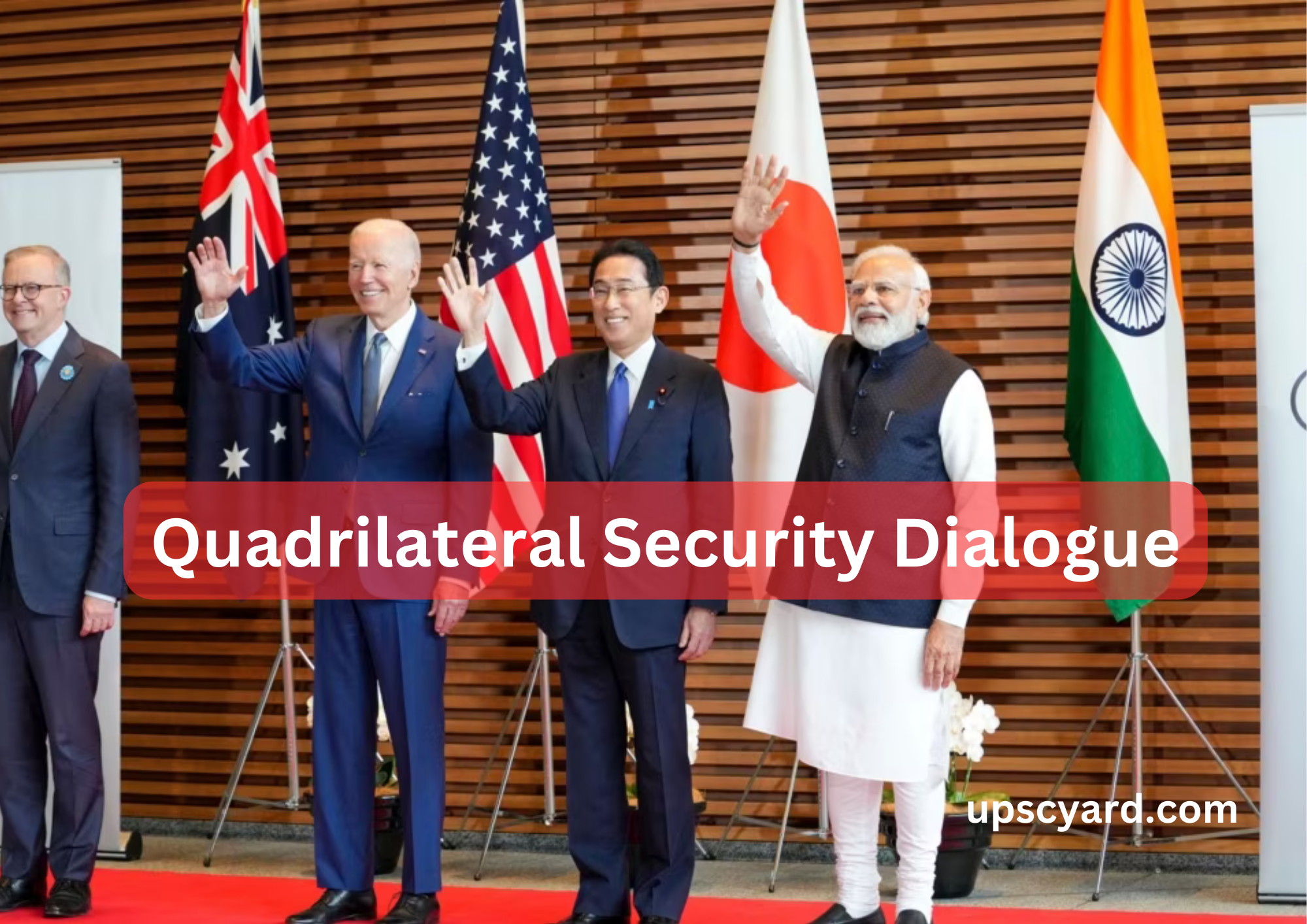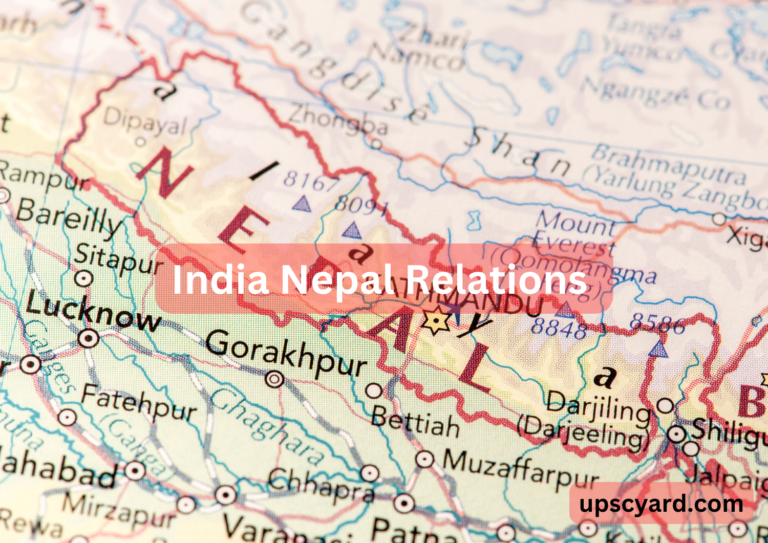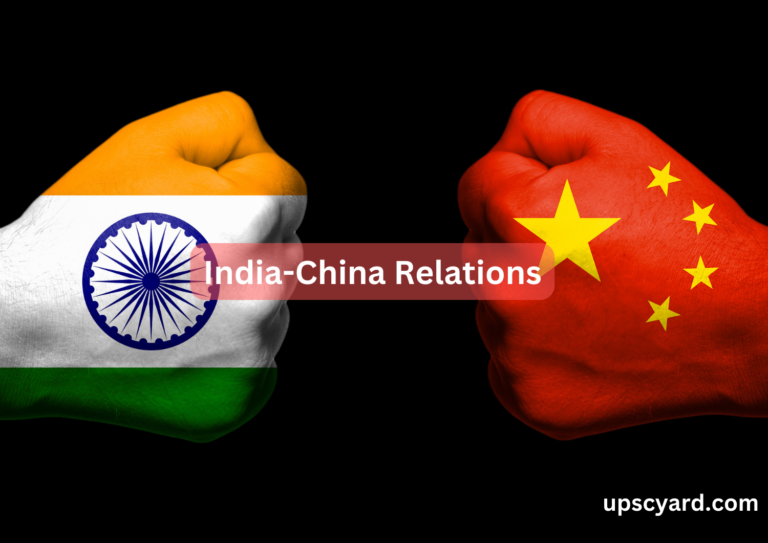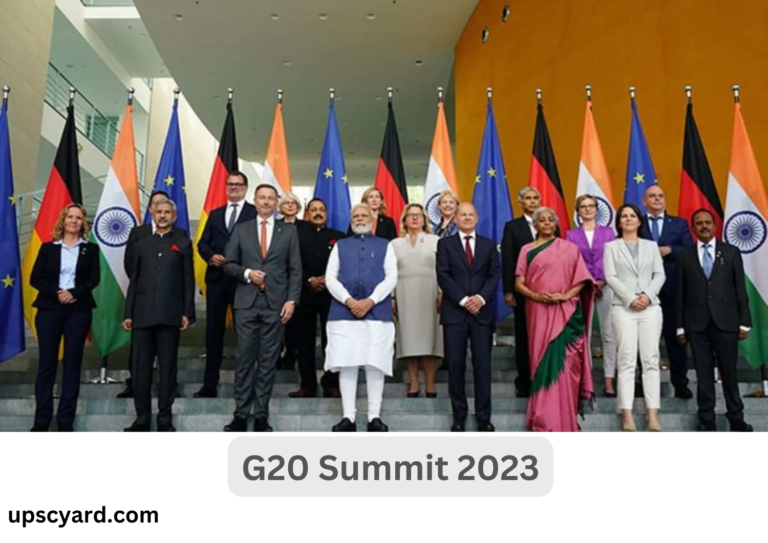“The Quad remains a group of friends who share many things but not a common enemy”
During its inception, there were expectations that the Quad would emerge as a united front against China’s assertive and expansionist actions. However, it has become evident that the Quad primarily focuses on its constructive goals and avoids direct confrontations with the shared adversaries of its member states, most notably, China.”
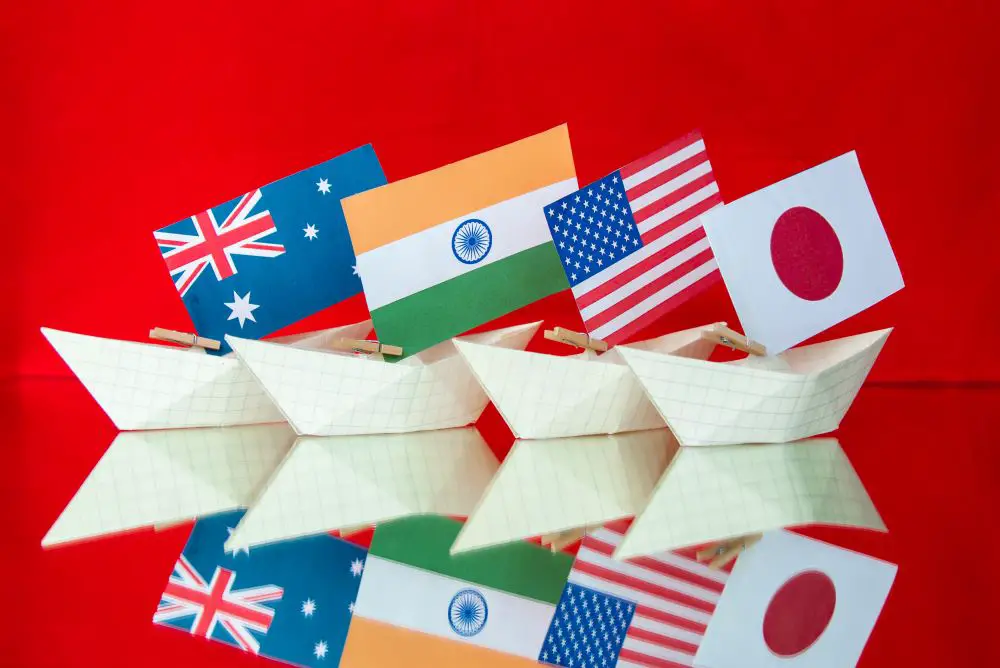
The Quadrilateral Security Dialogue (QUAD) is an informal strategic alliance consisting of India, Japan, Australia, and the United States of America. Its origins can be traced back to India’s commendable relief efforts during the 2004-05 Tsunami that impacted Southeast Asian and South Asian regions.
The concept was subsequently championed by former Japanese Prime Minister Shinzo Abe in 2007. However, it took approximately another decade for the United States, Japan, Australia, and India to officially come together and establish this alliance.
The core objectives of QUAD encompass:
- Securing a Rules-Based Global Order: QUAD seeks to promote and uphold a global order that is founded on established rules and principles.
- Supporting a Liberal Trading System: Another key aim is to endorse and maintain an open and liberal international trading system that facilitates commerce among nations.
- Ensuring Freedom of Navigation: QUAD members are committed to safeguarding freedom of navigation in international waters, allowing for the unimpeded movement of vessels and vessels’ access to critical sea lanes.
The Quad represents a balanced approach situated between consensus-based regional multilateralism and a security alliance similar to NATO.
While this alliance is often viewed in the context of addressing concerns related to China’s actions and ensuring the security of Indo-Pacific nations, its primary purpose is not to target any single nation. Instead, its focus is on upholding international law and norms.
These member countries have experienced challenges due to China’s actions, and their collective efforts aim to foster respect for international rules. Furthermore, there’s potential for this alliance to expand into other regions, including Africa, where concerns about Chinese influence and colonization have arisen.
India’s participation in the Quad signifies a longstanding recognition of its power and influence as a prominent regional player in the Indian Ocean region.
The relationship between India and the United States is strengthening, with the U.S. showing willingness to share security responsibilities with India in managing Indian Ocean region security. The U.S. also expects India to emerge as a major power in the Indian Ocean, working in partnership to safeguard common interests in the region.
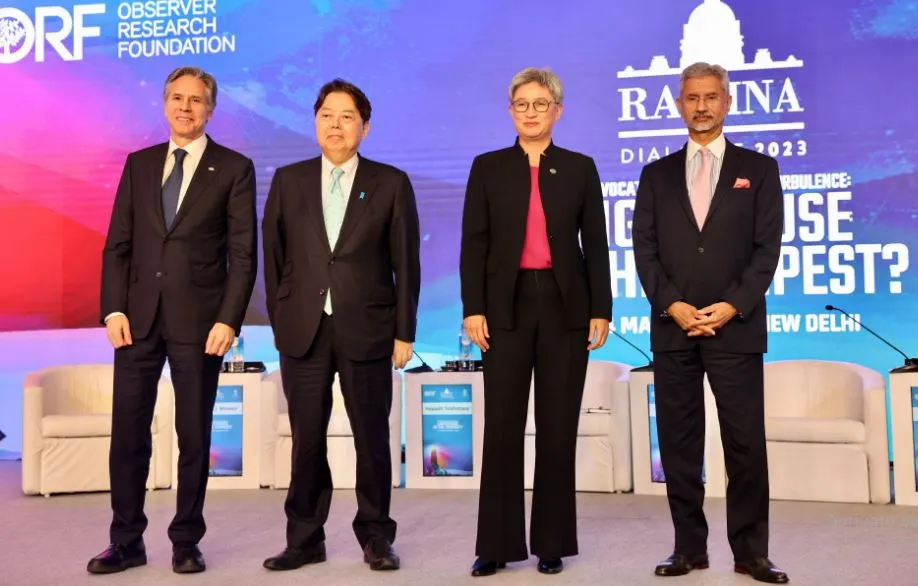
Quad foreign ministers
Analysis
The key question is the Quad’s effectiveness in countering China, considering the evolving geopolitical landscape.
Additionally, it’s crucial to examine how the Quad contributes to India’s capabilities and what India expects from its involvement in this group.
The Quad can potentially play a significant role in countering China in the maritime domain, serving as a balancing force and a deterrent against Chinese assertiveness in the Indo-Pacific region, notably in the South China Sea.
While the Quad currently lacks the necessary collective power, there appears to be no alternative but to establish a potential arrangement among like-minded maritime powers with shared strategic interests in the Indo-Pacific. This arrangement would aim to uphold freedom of navigation (FON), airspace, and a rule-based order.
However, the primary challenge faced by the Quad is that member countries have varying perceptions of the Indo-Pacific region, impacting their priorities and areas of focus.
Effective maritime security cooperation within the Quad is further complicated because three of its navies (Australia, the US, and Japan) operate within the NATO military alliance framework, while India is not part of any military alliance.
The Quad recognizes the centrality of ASEAN in the Indo-Pacific but faces debate over their inclusion due to Chinese influence over ASEAN nations, which have been hesitant to take a stand against Chinese activities in the South China Sea.
Quad Leaders’ Joint Statement over Ukraine War
21/5/23
- Deep Concern Over Ukraine War: In a historic move, the leaders of the Quad countries explicitly expressed their profound concern regarding the ongoing conflict in Ukraine.
- Mourning Consequences and Humanitarian Aid: The Quad leaders conveyed their condolences for the tragic consequences of the Ukraine war and pledged to continue providing humanitarian assistance to Ukraine.
- Advocating Dialogue and Diplomacy: They emphasized the need to end the Ukraine war through peaceful means, highlighting that the current era should not be defined by conflict.
- Non-Direct Mention of Russia’s Actions: While recognizing the severe global repercussions, including impacts on food, fuel, energy security, and critical supply chains, the Quad countries refrained from directly referencing Russia’s actions. This nuanced approach is seen as a nod to India’s differing perspective on the issue.
- Commitment to Indo-Pacific Stability: The leaders of the four nations reaffirmed their commitment to upholding stability in the Indo-Pacific region in accordance with international law.
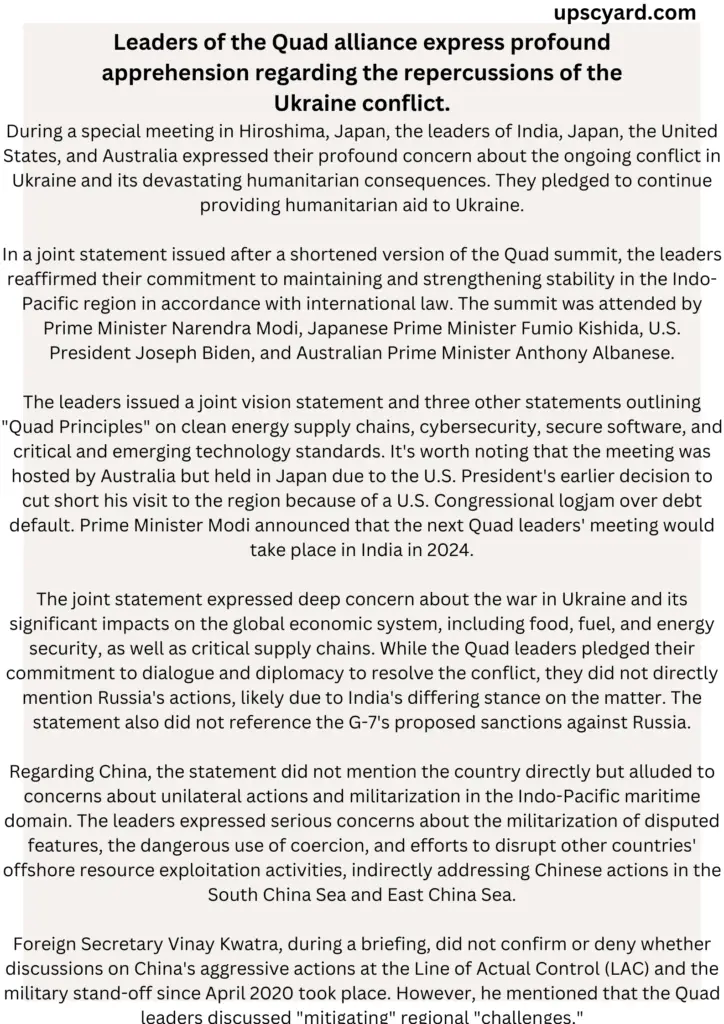
Future Scenario
Considering the prevailing international strategic scenario, China is reasonably confident that neither the US nor any other country will employ military force to dismantle their infrastructure in the South China Sea.
China is also actively bolstering its naval capability as part of its comprehensive national power (CNP) strategy, taking advantage of the perceived inaction by other countries in the Indo-Pacific region.
In this context, it becomes imperative for the Quad to strengthen itself beyond just participating in Malabar exercises and serving as a forum for dialogue. It needs to develop concrete capabilities in the form of maritime capacity building among its member states, enhance interoperability, and assert dominance over critical choke points that are sensitive to China.
While the Quad, in its current form, may not possess the required effectiveness to deter Chinese assertiveness, it undeniably holds the potential to evolve into a formidable instrument for this purpose. This transformation can be realized if the affected countries and the global community as a whole actively engage in addressing common concerns and challenges.

